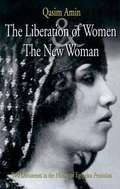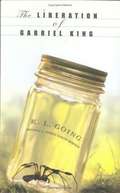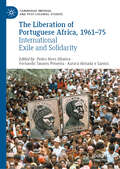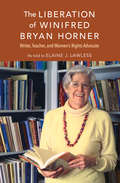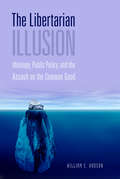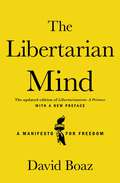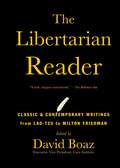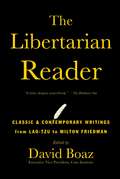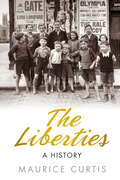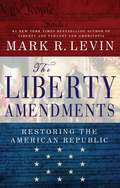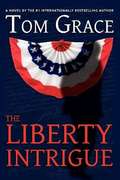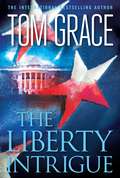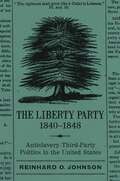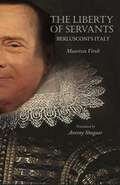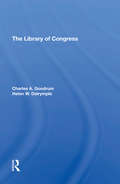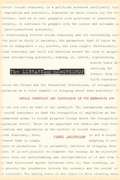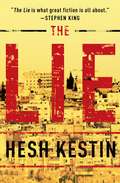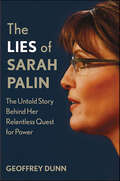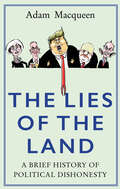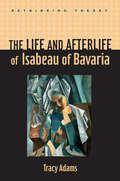- Table View
- List View
The Liberation Of Women And The New Woman: Two Documents In The History Of Egyptian Feminism
by Qasim AminQasim Amin (1863-1908), an Egyptian lawyer, is best known for his advocacy of women's emancipation in Egypt, through a number of works including The Liberation of Women and The New Woman. In the first of these important books in 1899, he started from the premise that the liberation of womenwas an essential prerequisite for the liberation of Egyptian society from foreign domination, and used arguments based on Islam to call for an improvement in the status of women. In doing so, he promoted the debate on women in Egypt from a side issue to a major national concern, but he alsosubjected himself to severe criticism from the khedival palace, as well as from religious leaders, journalists, and writers. In response he wrote The New Woman, published in 1900, in which he defended his position and took some of his ideas further. In The New Woman, Amin relies less on arguments based on the Quran and Sayings of the Prophet, and more openly espouses a Western model of development. Although published acentury ago, these two books continue to be a source of controversy and debate in the Arab world and remain key works for understanding the Arab feminist movement. The Liberation of Women and The New Woman appear here in English translation for the first time in one volume.
The Liberation of Gabriel King
by K. L. GoingSet in 1976 Georgia, this is the poignant story of a white boy, who is afraid of everything, and his best friend, who's the only black girl in school, and the summer they learn to face down their fears.
The Liberation of Portuguese Africa, 1961-75: International Exile and Solidarity (Cambridge Imperial and Post-Colonial Studies)
by Pedro Aires Oliveira Fernando Tavares Pimenta Aurora Almada e SantosThis book analyses the liberation struggles that took place in the Portuguese colonies of Angola, Mozambique, Guinea, Cabo Verde, and São Tomé e Príncipe during the second half of the twentieth century, highlighting how they unravelled and challenged colonialism in the international sphere. Activists established headquarters and training camps in various exile settings that were instrumental in their struggle for independence. Exile settings were places where the liberation movements worked with host countries, accessed representatives of foreign countries, made connections with nonstate actors and networks of support, and received political and military training. The complex networks of support formed by protestors around the globe operated on a transnational scale, using urban centres as sites of activism and arenas to promote a multiplicity of connections. Bringing together contributions from a range of skilled authors, the book explores selected hubs around the globe including those based in Kinshasa, Dar es Salaam, Cairo, Moscow, Beijing, New York, London, Paris, and São Paulo. Taking a comparative approach, this collection sheds light on the infrastructures of solidarity that were established by activists around the world, and highlights the transnational circulation of ideas around anticolonialism.
The Liberation of Winifred Bryan Horner: Writer, Teacher, and Women's Rights Advocate
by Elaine J. LawlessThis inspiring tale of grit and determination sprinkled with humor, wit, and a taste of irony is the story of Winifred Bryan Horner’s journey from a life of domesticity on the family farm after World War II to becoming an Endowed Professor. Her compelling story is one of a woman’s fight for equal rights and her ultimate success at a time when women were openly deemed "less than" men in the professional world. Winifred, a professional writer and consummate storyteller known to friends and family as Win, always assumed she would write her own memoir. But after retiring from teaching, she found that she could never find the time or inspiration to sit down and record the pivotal stories of her remarkable 92 years of life. Colleague and mentee Elaine J. Lawless devised a plan to interview Win about her life and allow her to tell stories with the intention that Win would edit the transcriptions into her memoir. Over four months, Elaine visited Win on Wednesdays to interview her about her life. Sadly, just one week after the conclusion of the final interview, Win unexpectedly passed away, before Elaine could give her the final transcripts. With the support of Win’s family, Elaine set out to finish this book on Win’s behalf.Win’s story is one that will inspire and resonate with women as they continue to work toward equality in the world.
The Libertarian Illusion: Ideology, Public Policy and the Assault on the Common Good
by William E. HudsonLooking at public policy debates in conventional terms—in terms of conflict between the left and the right—has grown increasingly cumbersome in an era where conservatives call themselves revolutionaries and liberals strike positively Burkean poses when it comes to reforming Social Security or Medicare. Through an examination of the libertarian worldview, once on the margins of American politics but now in the mainstream, William E. Hudson shows how it has attracted powerful political supporters and is promoted by a network of institutions and policy advocates dedicated to its ideals. The Libertarian Illusion offers a well researched, balanced, and systematic critique of libertarian policy proposals on both the conservative (taxation and fiscal policy, health care, social security, and business regulation) and liberal (abortion, stem cell research, and euthanasia) sides of the traditional political spectrum.Always engaging and provocative, Hudson hones in on the fundamental value differences that drive political debate, arguing that a more communitarian outlook offers solutions more likely to solve America’s policy problems.
The Libertarian Illusion: Ideology, Public Policy, and the Assault on the Common Good
by William E. HudsonThe Libertarian Illusion offers a well researched, balanced, and systematic critique of libertarian policy proposals on both the conservative (taxation and fiscal policy, health care, social security, and business regulation) and liberal (abortion, stem cell research, and euthanasia) sides of the traditional political spectrum.
The Libertarian Mind: A Manifesto for Freedom
by David BoazAn updated edition of David Boaz&’s timeless primer on libertarianism, with a new preface by the author. Libertarianism—the philosophy of personal and economic freedom—has deep roots in Western civilization and in American history, with increasing appeal to those dissatisfied with the status quo. The growth of executive power, chronic deficits, counterproductive foreign military interventions, protectionist trade measures, a costly drug war, and many other threats to civil liberties have pushed millions of Americans in a libertarian direction. The Libertarian Mind is a comprehensive guide to the history and philosophy of this movement. This updated edition delves into the principles of libertarianism, exploring its roots and its development over time. It offers a rich collection of ideas that present a compelling case for individual liberty and mutual cooperation. Challenging the notion of top-down governmental control, the book advocates instead for a society built on freedom and individual rights. But The Libertarian Mind is more than just a book; it&’s a manifesto for freedom. It&’s a call to action for those who believe in the sovereignty and fundamental dignity of the individual and the importance of political freedom.
The Libertarian Reader
by David BoazThe first collection of seminal writings on a movement that is rapidly changing the face of American politics, The Libertarian Reader links some of the most fertile minds of our time to a centuries-old commitment to freedom, self-determination, and opposition to intrusive government. A movement that today counts among its supporters Steve Forbes, Nat Hentoff, and P.J. O'Rourke, libertarianism joins a continuous thread of political reason running throughout history. Writing in 1995 about the large numbers of Americans who say they'd welcome a third party, David Broder of The Washington Post commented, "The distinguishing characteristic of these potential independent voters-aside from their disillusionment with Washington politicians of both parties-is their libertarian streak. They are skeptical of the Democrats because they identify them with big government. They are wary of the Republicans because of the growing influence within the GOP of the religious right." In The Libertarian Reader, David Boaz has gathered the writers and works that represent the building blocks of libertarianism. These individuals have spoken out for the basic freedoms that have made possible the flowering of spiritual, moral, and economic life. For all independent thinkers, this unique sourcebook will stand as a classic reference for years to come, and a reminder that libertarianism is one of our oldest and most venerable American traditions.
The Libertarian Reader
by David Boaz"The most magnificent collection of libertarian writings ever published" (Laissez Faire Books).An important collection of seminal writings on a movement that is rapidly changing the face of American politics, The Libertarian Reader links some of the most fertile minds of our time to a centuries-old commitment to freedom, self-determination, and opposition to intrusive government. This is the first comprehensive anthology of libertarian thought--from the Bible and Lao-Tzu to Hayek and Milton Friedman--to be published in one volume. The 68 selections from great libertarian writers are an intellectual feast, covering such key libertarian themes as skepticism about power, individual rights, spontaneous order, free markets, and peace. For all independent thinkers, this unique sourcebook will stand as a classic reference for years to come, and a reminder that libertarianism is one of our oldest and most venerable American traditions.
The Libertarian Reader
by David BoazThe first collection of seminal writings on a movement that is rapidly changing the face of American politics, The Libertarian Reader links some of the most fertile minds of our time to a centuries-old commitment to freedom, self-determination, and opposition to intrusive government. A movement that today counts among its supporters Steve Forbes, Nat Hentoff, and P.J. O'Rourke, libertarianism joins a continuous thread of political reason running throughout history.Writing in 1995 about the large numbers of Americans who say they'd welcome a third party, David Broder of The Washington Post commented, "The distinguishing characteristic of these potential independent voters-aside from their disillusionment with Washington politicians of both parties-is their libertarian streak. They are skeptical of the Democrats because they identify them with big government. They are wary of the Republicans because of the growing influence within the GOP of the religious right."In The Libertarian Reader, David Boaz has gathered the writers and works that represent the building blocks of libertarianism. These individuals have spoken out for the basic freedoms that have made possible the flowering of spiritual, moral, and economic life. For all independent thinkers, this unique sourcebook will stand as a classic reference for years to come, and a reminder that libertarianism is one of our oldest and most venerable American traditions.
The Liberties: A History
by Maurice CurtisFollowing the murder of Thomas á Becket, King Henry II came to Ireland. He decreed that an abbey be founded in his memory, and the monks that founded it were to be free from city taxes and rates. This ‘Liberty’ expanded and took in the part of Dublin which today is known as the Liberties, one of Dublin’s oldest and most interesting parts of the capital, occupying a unique place in Ireland’s social and cultural history. In this book, author Maurice Curtis explores this fascinating history and its significance to the people of Dublin.
The Liberty Amendments: Restoring the American Republic
by Mark R. LevinFor a century, the Statists have steadfastly constructed a federal Leviathan, distorting and evading our constitutional system in pursuit of an all-powerful, ubiquitous central government. The result is an ongoing and growing assault on individual liberty, state sovereignty, and the social compact. Levin argues that if we cherish our American heritage, it is time to embrace a constitutional revival. The delegates to the 1787 Constitutional Convention in Philadelphia and the delegates to each state’s ratification convention foresaw a time when—despite their best efforts to forestall it—the Federal government might breach the Constitution’s limits and begin oppressing the people. Agencies such as the IRS and EPA and programs such as Obamacare demonstrate that the Framers’ fear was prescient. Therefore, the Framers provided two methods for amending the Constitution. The second was intended for our current circumstances—empowering the states to bypass Congress and call a convention for the purpose of amending the Constitution. Levin argues that we, the people, can avoid a perilous outcome by seeking recourse, using the method called for in the Constitution itself. The Framers adopted ten constitutional amendments, called the Bill of Rights, that would preserve individual rights and state authority. Levin lays forth eleven specific prescriptions for restoring our founding principles, ones that are consistent with the Framers’ design. His proposals—such as term limits for members of Congress and Supreme Court justices and limits on federal taxing and spending—are pure common sense, ideas shared by many. They draw on the wisdom of the Founding Fathers—including James Madison, Benjamin Franklin, Thomas Jefferson, and numerous lesser-known but crucially important men—in their content and in the method for applying them to the current state of the nation. Now is the time for the American people to take the first step toward reclaiming what belongs to them. The task is daunting, but it is imperative if we are to be truly free.
The Liberty Intrigue: A Novel
by Tom GraceRoss Egan has quietly labored for years in the West African nation of Dutannuru, a tiny republican democracy that emerged from the wreckage of the brutal civil war that claimed the brilliant engineer's wife and child. When a neighboring despot threatens Dutannuru with renewed violence, Egan is abruptly thrust onto the world stage at the center of the deadly international crisis. His actions and resulting notoriety land him on the short list of individuals capable of challenging the progressive incumbent for the presidency of the United States. A political neophyte, Egan is intrigued by the task of unseating a ruthless political operator seen by some as the most dangerously leftist president in the nation's history. To win the White House, Egan must mount the most unorthodox presidential campaign ever attempted, and navigate through a daunting new world marked by character assassination, high-level corruption, armed raids, and political murder.
The Liberty Intrigue: A Novel
by Tom GraceAmerican billionaire Ross Egan is still living in the West African nation of Dutannuru where his wife and child died years earlier in a brutal civil war. Now a fragile democracy, Dutannuru is thrust into the international spotlight when a neighboring despot threatens violence—and Ross Egan's heroic actions and immediate worldwide fame abruptly land him on the short list of candidates for the United States presidency. <P><P> Despite his reservations, Egan is intrigued by the challenge of unseating the incumbent, a ruthless and radically left-wing political operator. But entering the presidential race may turn out to be the most dangerous decision this war-hardened expat billionaire has ever made...
The Liberty Party, 1840-1848: Antislavery Third-Party Politics in the United States (Antislavery, Abolition, and the Atlantic World)
by Reinhard O. JohnsonIn early 1840, abolitionists founded the Liberty Party as a political outlet for their antislavery beliefs. A mere eight years later, bolstered by the increasing slavery debate and growing sectional conflict, the party had grown to challenge the two mainstream political factions in many areas. In The Liberty Party, 1840--1848, Reinhard O. Johnson provides the first comprehensive history of this short-lived but important third party, detailing how it helped to bring the antislavery movement to the forefront of American politics and became the central institutional vehicle in the fight against the "peculiar institution." As the major instrument of antislavery sentiment, the Liberty organization was more than a political party and included not only eligible voters but also disfranchised African Americans and women. Most party members held evangelical beliefs, and as Johnson relates, an intense religiosity permeated most of the group's activities. At least eight U.S. senators, eighteen members of the House of Representatives, five state governors, and two justices of the Supreme Court were among the many Liberty Party members with distinguished careers in the public and private sectors. Though most early Liberty supporters came from the Whig Party, an increasing number of former Democrats joined the party as it matured. Johnson discusses the Liberty Party's founding and its national growth through the presidential election of 1844; its struggles to define itself amid serious internal disagreements over philosophy, strategy, and tactics in the ensuing years; and the reasons behind its decline and merger into the Free Soil coalition in 1848. Since most Liberty Party activities occurred at the state level, Johnson treats the history of each state party in considerable detail, demonstrating how the party developed differently state by state and illustrating how these differences blended with the national view of the party.Informative appendices include statewide results for all presidential and gubernatorial elections between 1840 and 1848, the Liberty Party's 1844 platform, and short biographies of every Liberty member mentioned in the main text of the book. Epic in scope and encyclopedic in detail, The Liberty Party, 1840--1848 will serve as an invaluable reference for anyone interested in nineteenth-century American politics.
The Liberty of Servants: Berlusconi's Italy
by Maurizio ViroliA compelling look at how a people can be unfree even though they are not oppressedItaly is a country of free political institutions, yet it has become a nation of servile courtesans, with Silvio Berlusconi as their prince. This is the controversial argument that Italian political philosopher and noted Machiavelli biographer Maurizio Viroli puts forward in The Liberty of Servants. Drawing upon the classical republican conception of liberty, Viroli shows that a people can be unfree even though they are not oppressed. This condition of unfreedom arises as a consequence of being subject to the arbitrary or enormous power of men like Berlusconi, who presides over Italy with his control of government and the media, immense wealth, and infamous lack of self-restraint.Challenging our most cherished notions about liberty, Viroli argues that even if a power like Berlusconi's has been established in the most legitimate manner and people are not denied their basic rights, the mere existence of such power makes those subject to it unfree. Most Italians, following the lead of their elites, lack the minimal moral qualities of free people, such as respect for the Constitution, the willingness to obey laws, and the readiness to discharge civic duties. As Viroli demonstrates, they exhibit instead the characteristics of servility, including flattery, blind devotion to powerful men, an inclination to lie, obsession with appearances, imitation, buffoonery, acquiescence, and docility. Accompanying these traits is a marked arrogance that is apparent among not only politicians but also ordinary citizens.
The Library Of Congress
by Charles A Goodrum Helen W DalrympleFrom a review of the first edition: "For those of us whose minds unhinge at the sheer immensity of the Library of Congress, with its maze of corridors, multilayered stacks and circuitous subterranean passages, this study will prevent many a false step."—Smithsonian Since the first edition of this book appeared in 1972, there have been many changes in the Library, including a massive reorganization begun in 1977 under the leadership of Daniel J. Boorstin, the present Librarian of Congress. This completely revised and updated look at the Library brings the story up to date, discussing the Library's history, how it works, how the user can take advantage of its many services, where it is going, and how it meets the wide-ranging needs of Congress, other federal government offices, and the library, scholarly, and creative worlds. The authors emphasize the recent impact of technology on what is the largest information-storage and retrieval "machine" in the world. Lively writing and accessible language make this book an ideal introduction to the Library of Congress for the visitor, the first-time user, or the general reader, but it is also a must for every library and librarian, as well as an excellent textbook for library administration courses. The information it contains will make it of great interest even to the most experienced users of the Library.
The Library and the Workshop
by Jenny AnderssonThis book offers a detailed account of the way that social democracy today makes sense of capitalism. In particular, it challenges the idea that social democracy has gone "neoliberal," arguing that so-called Third Way policies seem to have brought out new aspects of a thoroughgoing social interventionism with roots deep in the history of social democracy. Author Jenny Andersson expertly develops the claim that what distinguishes today's social democracy from the past is the way that it equates cultural and social values with economic values, which in turn places a premium on individuals who are capable of succeeding in the knowledge economy. Offering an insightful study of Britain's New Labour and Sweden's SAP, and of the political cultural transformations that have taken place in those countries, this is the first book that looks seriously into how the economic, social, and cultural policies of contemporary social democracy fit together to form a particular understanding of capitalism and capitalist politics.
The Library of Congress (Know Your Government)
by Andrew L. SimpsonFrom the Book Jacket: THE LIBRARY OF CONGRESS was founded in 1800 to aid members of Congress in the drafting of legislation. From a collection of just 152 books, the Library's holdings, as well as the number of people the Library assists, have increased through the years. Today it is the largest library in the world, with more than 85 million items: Its collections include books, maps, manuscripts, prints, photographs, sound recordings, motion pictures, and musical works. Through the Congressional Research Service and the Law Library, it still provides research assistance to members of Congress. But it also offers a wide variety of services to the public: It loans books and provides cataloging and bibliographic assistance to other libraries, distributes braille and talking books to the blind, and administers the Copyright Office. The Library of Congress also serves as a cultural center by presenting exhibits, concerts, and poetry readings. Today the Library of Congress is actively exploring new technologies, including paper deacidification and optical disk storage, to preserve its collections for future generations. THE KNOW YOUR GOVERNMENT series is an introduction to the history and functions of the various departments and agencies that make up our national government. The series is designed to present an overview that is comprehensive and yet accessible for young readers and others who require a broad, straightforward introduction to the workings of the federal government. Each volume in the series focuses on the history, purpose, and scope of a different government department or agency. The books are generously illustrated and are written by experts in the fields of history, politics, law, and government. The introduction, "Government: Crises of Confidence," by the Pulitzer Prize-winning historian Arthur M. Schlesinger, Jr., places the federal government in historical context and explains the purpose of the series. "Without an understanding of government, we cannot have the informed criticism that makes government do the job right. It is the duty of every American citizen to know our government, which is what this series is all about."
The Lie: A Novel
by Hesh KestinA provocative thriller about a dynamic Israeli lawyer—famous for defending accused Palestinians—whose views are tested when her own son is taken captive by Hezbollah: “The Lie is what great fiction is all about” (Stephen King).Dahlia Barr is a devoted mother, soon-to-be divorced wife, lover of an American television correspondent. She is also a brash and successful Israeli attorney who is passionate about defending Palestinians accused of terrorism. One day, to her astonishment, the Israeli national police approach Dahlia with a tantalizing proposition: Join us, and become the government’s arbiter on when to use the harshest of interrogation methods—what some would call torture. Dahlia is intrigued. She has no intention of permitting torture, but can she change the system from within? She takes the job. As Dahlia settles into her new role, her son Ari, a twenty-year-old lieutenant in the Israel Defense Forces, is kidnapped by Hezbollah and whisked over the border to Lebanon. The one man who may hold the key to Ari’s rescue is locked in a cell in police headquarters. He is an Arab who has a long and complicated history with Dahlia. And he’s not talking. Yet. A nail-biting thriller that “will stay with you” (The New York Times Book Review), The Lie is an unforgettable story of human beings on both sides of the terror equation whose lives turn out to share more in common than they ever could have imagined. “An utterly riveting thriller that is likely to rank as one of the year’s best…The Lie has everything: memorable characters, a compelling plot, white-knuckle military action, and an economy and clarity of prose that is direct, powerful, and at times beautiful” (Booklist, starred review).
The Lies of George W. Bush: Mastering the Politics of Deception
by David Corn"Get ready to get mad. Corn has cut through the spin and crafted an important and powerful challenge to Bush and his crew." --Molly Ivins. "David Corn's The Lies of George W. Bush is as hard-hitting an attack as has been leveled against the current president." --Los Angeles Times. "George W. Bush is a liar. He has lied large and small, directly and by omission. He has mugged the truth-not merely in honest error, but deliberately, consistently, and repeatedly." In this scathing indictment of the president and his inner circle, David Corn reveals the deceptions at the heart of the Bush presidency. With wit and style, Corn details how the Bush administration has consistently lied to the American public to advance its own interests, from mischaracterizing intelligence to whip up support for war with Iraq to misrepresenting the possible consequences of his supersized tax cut and offering false claims to push a radical agenda on crucial issues across the board. In this unflinching work of hard-hitting journalism, Corn explains how Bush has managed to get away with it and explores the danger of presidential deceit in a perilous age. This paperback edition also includes an up-to-date analysis of the aftermath of the war with Iraq.
The Lies of Sarah Palin: The Untold Story Behind Her Relentless Quest for Power
by Geoffrey DunnIn The Lies of Sarah Palin, Geoffrey Dunn provides the first full-scale and in-depth political biography of the controversial Republican vice-presidential candidate and former governor of Alaska. Based on more than two-hundred interviews---many of them with Republican colleagues and one-time political allies of Palin's---and more than forty-thousand pages of uncovered documents, Dunn chronicles Palin's troubling penchant for duplicity in grim detail, from her dysfunctional childhood in Wasilla through her contentious run for mayor and her failed governorship of Alaska. He also provides the shocking inside story of her betrayal of running mate John McCain during the 2008 presidential campaign and her self-serving resignation as governor in July of the following year. Dunn deftly places Palin in the American tradition of right-wing demagogues---from Huey Long to Joe McCarthy---and details her troubling obsession with Barack Obama as it fuels her own political ambitions and a potential run for the presidency in 2012. The Lies of Sarah Palin is a journalistic tour de force that vividly reveals the Queen of the Tea Party movement as a vengeful and manipulative empress without clothes. This is the definitive book on Sarah Palin.
The Lies of the Land: An Honest History of Political Deceit
by Adam MacqueenTrust in our politicians is at an all-time low. We're in a "post-truth" era, where feelings trump facts, and where brazen rhetoric beats honesty. But do politicians lie more than they used to? And do we even want them to tell the truth?In a history full of wit and political acumen, Private Eye journalist Adam Macqueen dissects the gripping stories of the biggest political lies of the last half century, from the Profumo affair to Blair's WMDs to Boris Johnson's £350 million for the NHS. Covering lesser known whoppers, infamous lies from foreign shores ("I did not have sexual relations with that woman"), and some of the resolute untruths from Donald Trump's explosive presidential campaign, this is the quintessential guide to dishonesty from our leaders - and the often pernicious relationship between parliament and the media.But this book is also so much more. It explains how in the space of a lifetime we have gone from the implicit assumption that our rulers have our best interests at heart, to assuming the worst even when - in the majority of cases - politicians are actually doing their best.
The Life and Afterlife of Gay Neighborhoods: Renaissance and Resurgence (The Urban Book Series)
by Daniel Baldwin Hess Alex BittermanThis open access book examines the significance of gay neighborhoods (or ‘gayborhoods’) from critical periods of formation during the gay liberation and freedom movements of the 1960s and 1970s, to proven durability through the HIV/AIDS pandemic during the 1980s and 1990s, to a mature plateau since 2000. The book provides a framework for contemplating the future form and function of gay neighborhoods. Social and cultural shifts within gay neighborhoods are used as a framework for understanding the decades-long struggle for LGBTQ+ rights and equality.Resulting from gentrification, weakening social stigma, and enhanced rights for LGBTQ+ people, gay neighborhoods have recently become “less gay,” following a 50-year period of resilience. Meanwhile, other neighborhoods are becoming “more gay,” due to changing preferences of LGBTQ+ individuals and a propensity for LGBTQ+ families to form community in areas away from established gayborhoods. The current ‘plateau’ in the evolution of gay neighborhoods is characterized by generational differences—between Baby Boom pioneers and Millennials who favour broad inclusivity—signaling various possible trajectories for the future ‘afterlife’ of these important LGBTQ+ urban spaces.The complicating impacts of the COVID-19 pandemic provides a point of comparison for lessons learned from gay neighborhoods and the LGBTQ+ community that bravely endured the onset of the HIV/AIDS pandemic.This book will be of interest to students and scholars in various disciplines—including sociology, social work, anthropology, gender and sexuality, LGTBQ+ and queer studies, as well as urban geography, architecture, and city planning—and to policymakers and advocates concerned with LGBTQ+ rights and social justice.
The Life and Afterlife of Isabeau of Bavaria (Rethinking Theory)
by Tracy AdamsThe fascinating history of Isabeau of Bavaria is a tale of two queens. During her lifetime, Isabeau, the long-suffering wife of mad King Charles VI of France, was respected and revered. After her death, she was reviled as an incompetent regent, depraved adulteress, and betrayer of the throne. Asserting that there is no historical support for this posthumous reputation, Tracy Adams returns Isabeau to her rightful place in history. Adulteress and traitor—two charges long leveled against the queen—are the first subjects of Adam’s reinterpretation of medieval French history. Scholars have concluded that the myths of Isabeau’s scandalous past are just that: rumors that evolved after her death in the context of a political power struggle. Unfortunately, this has not prevented the lies from finding their way into respected studies on the period. Adams’s own work serves as a corrective, rehabilitating the reputation of the good queen and exploring the larger topic of memory and the creation of myth. Adams next challenges the general perception that the queen lacked political acumen. With her husband incapacitated by insanity, Isabeau was forced to rule a country ripped apart by feuding, power-hungry factions. Adams argues that Isabeau handled her role astutely in such a contentious environment, preserving the monarchy from the incursions of the king’s powerful male relatives. Taking issue with history’s harsh treatment of a woman who ruled under difficult circumstances, Adams convincingly recasts Isabeau as a respected and competent queen.
